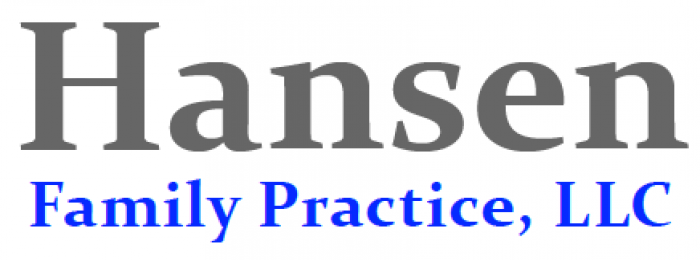Nurse Practitioner Role
In the State of Montana a Family Nurse Practitioner (FNP) is an Independent Practitioner, we do not need to practice under the license or supervision of a medical doctor such as the in the instance of a Physician assistant. That does not mean that we do not collaborate with our colleges in the healthcare field. We treat a wide variety of health conditions and have prescriptive authority. Family Nurse Practitioners provide comprehensive care to individuals of all ages. FNP’s work in settings such as hospitals, urgent cares, clinics, long term care facilities, specialty clinics, and health departments. We provide care of both acute and chronic illness. We focus on illness prevention, acute and chronic disease management and patient education.
The education for a Nurse Practitioner builds on the valuable experience of the Registered Nurse with specialized training in a choice of 4 advanced degree categories. These being: Certified Nurse Practitioner, Certified Nurse Midwife, Certified Registered Nurse Anesthetist, and a Clinical Nurse Specialist.
Below is the licensing information and prescriptive authority for Montana:
License Summary for an Advanced Practice Registered Nurse (APRN)
in Montana:
Certified Nurse Practitioner (CNP)
Certified Nurse Midwife (CNM)
Certified Registered Nurse Anesthetist (CRNA)
Clinical Nurse Specialist (CNS)
The following outlines Advanced Practice Registered Nurse (APRN) licensing information Educational Requirements: (See rule 24.159.1414)
For those licensed in 2008 or after, a master's degree or post-graduate certificate from an accredited APRN program that provided a minimum of 250 hours of didactic instruction and a minimum of 500 hours of preceptorship.
OR
For those licensed between 1995 and 2007, a master's degree from an accredited nursing education program, or a certificate from an accredited post master's program which prepared the RN for the APRN recognition sought; and, individual certification rom a certifying body.
OR
For those licensed prior to 1995, a degree from a post-basic professional nursing education program in an APRN specialty with the minimum length of one academic year consisting of at least 250 hours of didactic instruction and 400 hours under a preceptor; and, individual certification from a certifying body.
C. Examination Requirements: Pass a national certifying exam in specialty area. See the list of recognized National Certifying Organizations.
D. Initial Licensure Requirements: (See rule 24.159.1412)
1. Possess a current Montana RN license, or must submit an RN application with your APRN application.
2. Ensure that the official transcript, with degree awarded and date degree was conferred, is sent from the advanced nursing educational program directly to the Montana Board of Nursing.
3. Ensure evidence of preceptorship is sent from the educational institution directly to the Montana Board of Nursing.
4. Provide proof of current national certification in the APRN role and population focus, congruent with education preparation.
E. Licensure by Credentialing Requirements: (If you have an APRN license in another state. Also referred to as ENDORSEMENT in the Board of Nursing rules.)
1. Possess a current Montana RN license, or must submit an RN application with your APRN application.
2. Ensure that the official transcript, with degree awarded and date degree was conferred, is sent from the advanced nursing educational program directly to the Montana Board of Nursing.
3. The applicant is responsible for requesting official verification of APRN licensure status from all jurisdictions for the preceding 2
years. (Use the License Verification form).
4. Provide verification of current national certification in APRN role and population focus.
F. Continuing Education: Must complete 24 contact hours of continuing education during each 2 year license renewal period. A random audit
of licensees will be performed. (See rule 24.159.1469).
From the Montana Department of Labor and Industry, Montana State Board of Nursing website. http://bsd.dli.mt.gov/license/bsd_boards/nur_board/board_page.asp
License Summary for Prescriptive Authority in Montana: (Available for the following APRN specialties)
Certified Nurse Practitioner (CNP)
Certified Nurse Midwife (CNM)
Certified Registered Nurse Anesthetist (CRNA)
Clinical Nurse Specialist (CNS)
The following outlines Prescriptive Authority licensing information. Initial Licensure Requirements: (See rule 24.159.1463)
1. Possess a current Montana RN license with an APRN specialty endorsement application, or applying for an APRN endorsement.
2. If you have graduated from an accredited program in the last 5 years, submit:
a. Evidence of successful completion of a graduate level course of three semester credits in advanced pharmacology that includes instruction in
pharmacodynamics, pharmacokinetics, and pharmacotherapeutics of all broad categories of agents.
b. Evidence of successful completion of a graduate level course that includes differential diagnosis/disease management.
c. Evidence of supervised clinical practice that integrates pharmacologic intervention with patient management.
3. If you have graduated from an accredited program more than 5 years ago, must complete: either a graduate level course of three semester credits or 45 contact hours of continuing education that includes instruction in pharmacodynamics, pharmacokinetics, and pharmacotherapeutics of all broad categories of agents.
F. Continuing Education: (See rule 24.159.1468)
1. Must complete 12 contact hours of continuing education during each 2 year license renewal period in pharmacology, pharmacotherapeutics, and/or clinical management of drug therapy.
2. The prescriptive authority contact hours can be used to satisfy 12 of the required 24 contact hours to renew the general APRN license
From the Montana Department of Labor and Industry, Montana State Board of Nursing Website http://bsd.dli.mt.gov/license/bsd_boards/nur_board/board_page.asp

